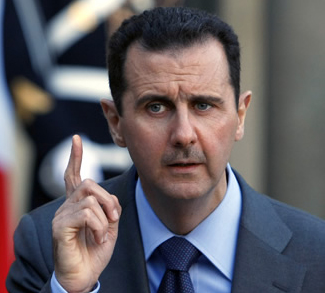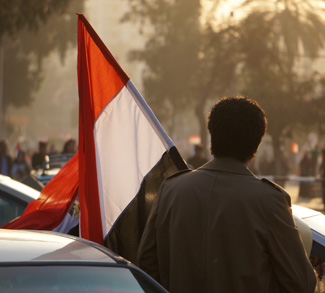Recently, Japan’s Parliamentary Vice Minister for Foreign Affairs, Matsumoto Hisashi, went to Riyadh to visit to the Saudi Judo Federation in hopes of strengthening bilateral relations. He also met with Saudi officials to discuss opportunities under Riyadh’s “Vision 2030,” a restructuring and modernization of the Saudi economy under the leadership of Saudi Crown Prince Mohammed bin Salman.
For Riyadh, the strategy is of critical importance given its growing need for outside investment. Many countries are making a transition away from fossil fuels, thus reducing global oil demand. The Saudi grand strategy also aims to transform its image, and in tandem, its foreign policy. In that aim, “soft power” – the ability of nations to attract based on the legitimacy of their ascribed values – is key.
Closely tied to soft power pursuits is nation branding, where countries can remake their global image through a variety of means. For Riyadh, that has been through sports, which have been a boon for the Kingdom and the wider Middle East. Saudi Arabia has successful in attracting premier talent to the Saudi Pro League, while Qatar held a wildly successful 2022 World Cup. And FIFA, the governing body behind football, has given the Crown Prince another success via hosting rights to the 2034 World Cup, where Riyadh was the sole bidder. The Public Investment Fund (PIF) of Saudi Arabia has invested billions to major sporting events, including football, golf, and Formula One. And in Hisashi’s visit to Riyadh, discussions where held on collaboration for the 20th Asian Games that will be held in Nagoya in 2026.
The danger, however, is the “sportswashing” of Middle East and Northern African (MENA) region countries with abysmal human rights records. Often behind the scenes of these events are abuses of migrant workers. In Doha, the toll on migrants was high, with 6,500 migrants reported dead as of February 2021 since Qatar won its World Cup bid. Another report noted that Bangladesh lost at least four people per day working in Saudi Arabia in 2022, with more than 13,500 dying between 2008 and 2022. Much of this is due to poor labor conditions as well as Saudi’s “Kafala” sponsorship system, which ties migrants to their employer.
The lure of billions in revenue, sponsorships, and the promise of accelerated economic growth often causes multinational corporations and developed countries to take a blind eye to human rights abuses and work to create lasting economic partnerships. Japan appears to be following suit. 2025 marks the 70th anniversary of Japan-Saudi bilateral ties and the Ministry of Foreign Affairs of Japan has endorsed a wide range of events to be held in Japan and in Saudi Arabia. The government of Japan is holding an application process for these events, where applicants are warned about violations of public order or morality, violations of religion, or promotion of ideologies, or those who do not serve the public interest.
While these symbolic events are expected to be minor and the ties between Tokyo and Riyadh are expected to grow, Japan cannot ignore or abandon human rights norms in the process. As Saudi Arabia’s Fourth Cycle Universal Periodic Review (UPR), a human rights mechanism of the United Nations, Japan’s leadership was absent on critical human rights protections for migrant workers. Predictably, affected countries or those with high rates of remittances like Bangladesh, Nepal, Mexico, Uruguay, and Brazil were among the handful of those making specific recommendations regarding the improvement of labor laws for migrant populations. Japan did not make any specific recommendations and the language employed was tepid at best.
Japan’s track record with Riyadh is far from stellar. In 2017, the two countries created the “Saudi-Japan Vision 2030,” a framework for a strategic partnership that explores wide ranging areas of economic cooperation with public and private sector involvement in accelerating economic growth and development. And while human rights organizations had pressed the government of Japan to work human rights into the discussions of meetings with senior Saudi officials, calls fell again on deaf ears.
However, there will be more opportunities. Japan’s own “soft power” has been built on the exportation of cultural values and “cute” products loved by many. Beginning in the 1990s, it forged a new image for itself by advancing human rights standards through bilateral and multilateral diplomacy. It has however, regressed in this area, evidenced by initial lackadaisical efforts to discourage Japanese companies from doing business in post-coup Myanmar. Tom Andrews, the UN Special Rapporteur on the situation of human rights in Myanmar, called on Japan under former Prime Minister Fumio Kishida to “recalibrate” a failing international response. While Kirin Brewery and other Japanese companies finally abandoned their partnerships with state-owned enterprises, Japan’s leadership on human rights is still under scrutiny.
Through its association with Saudi Arabia and other human rights abusing countries in the Middle East, Japan must find a way to lead again. The growing partnership with Riyadh is now a critical test.
Mark S. Cogan is an Associate Professor of Peace and Conflict Studies at Kansai Gaidai University in Osaka, Japan. He is a former communications specialist with the United Nations in Southeast Asia, Sub-Saharan Africa, and the Middle East.
The views expressed in this article belong to the author(s) alone and do not necessarily reflect those of Geopoliticalmonitor.com.




